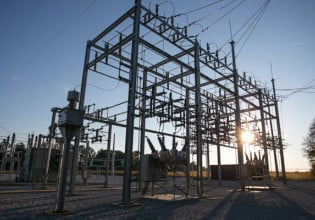A narrow focus on cost alone may be leading to misconceptions about the real value of energy storage according to a new report by the World Energy Council 'E-storage – shifting from cost to value'. The report, which focuses on solar and wind applications, says that the focus only on investment costs is leading to the perception that energy storage is more expensive than it actually is because it ignores the system value of stored energy.
The report is calling for the true value of energy storage to be recognized by taking into account both its cost and revenue benefits. It looks at a number of storage costings across the technology spectrum to conclude that the widely used levelized cost of energy methodology is hindering the progress of energy storage. The analysis identifies “double trouble†problems with the methodology, namely arbitrariness which does not allow for differences in application cases, and incompleteness as only limited account of revenue is taken.
Christoph Frei, Secretary General of the World Energy Council, said: “Energy storage is a critical catalyst of the energy transition whose benefits are still undervalued. The costs have already come down, but will have to fall further for a much broader roll-out and use in household and e-mobility. The investment community has good reason to be excited about the innovation and business models that will emerge from new opportunities.
The report also estimates that with the many new technologies in the pipeline, storage costs of energy will fall by as much as 70% over the next 15 years. Solar storage will become more competitive as new battery technology drives prices down, and wind storage more attractive as technical advances in areas such as composite materials enables the power generated by wind turbines to increase. While batteries are currently too expensive for large-scale use, improving technology is cutting costs, which means storage systems could replace some plants and avoid the need for new ones, as well as reduce demand for oil.
In order to create the right policy environment that will unlock the potential of energy storage and capitalize on its true cost and value benefits, the report makes five recommendations to policymakers: Go beyond just costs – cheapest is not always best; Examine storage through holistic case studies – generic cost estimates are not sufficient; Work with operators and regulators to accelerate the development of flexible markets – often the full value of flexibility is not sufficiently recognized and monetized; Establish supporting policies and an enabling regulatory framework to facilitate further commercial deployment of storage technologies; and Consider storage as a key component for grid expansion or extension.
However, the report warns that the value of stored energy needs to be assessed on a case by case basis because revenue streams will vary over time and between countries as they are dependent on the market, policy regime and variability of competing resources.
Christoph Frei, added: “To take full advantage of the growing wind and solar electricity shares, policymakers must review electricity market design so to incentivize the build-up of storage capacity and ensure reliable and affordable electricity supply.â€






